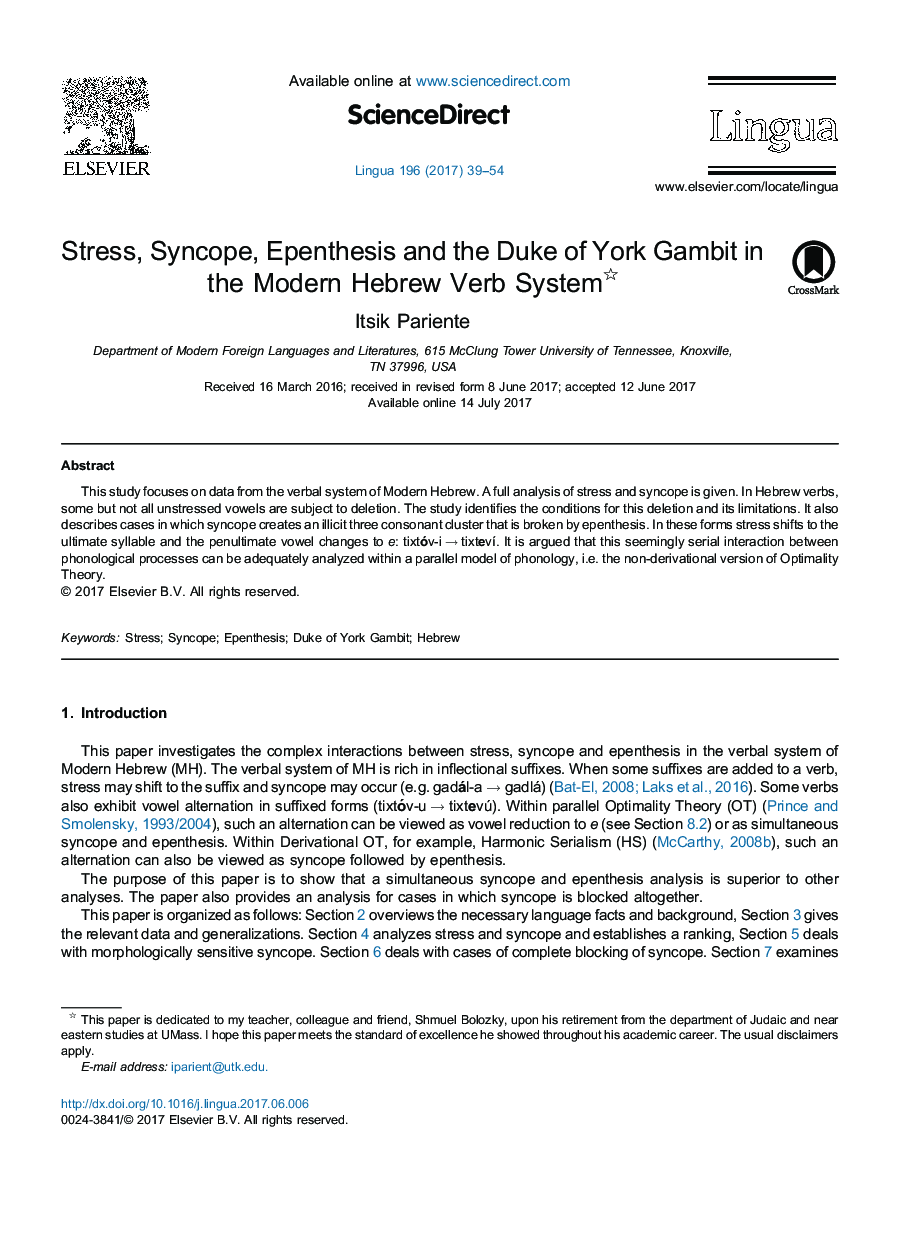| Article ID | Journal | Published Year | Pages | File Type |
|---|---|---|---|---|
| 5042971 | Lingua | 2017 | 16 Pages |
â¢A full analysis of stress and syncope in Hebrew verbs is given.â¢Syncope can create an illicit three consonant cluster that is broken by epenthesis.â¢It is argued that this interaction can be adequately analyzed within a non-derivational version of Optimality Theory.â¢Syncope blocking is also discussed.
This study focuses on data from the verbal system of Modern Hebrew. A full analysis of stress and syncope is given. In Hebrew verbs, some but not all unstressed vowels are subject to deletion. The study identifies the conditions for this deletion and its limitations. It also describes cases in which syncope creates an illicit three consonant cluster that is broken by epenthesis. In these forms stress shifts to the ultimate syllable and the penultimate vowel changes to e: tixtóv-i â tixtevÃ. It is argued that this seemingly serial interaction between phonological processes can be adequately analyzed within a parallel model of phonology, i.e. the non-derivational version of Optimality Theory.
